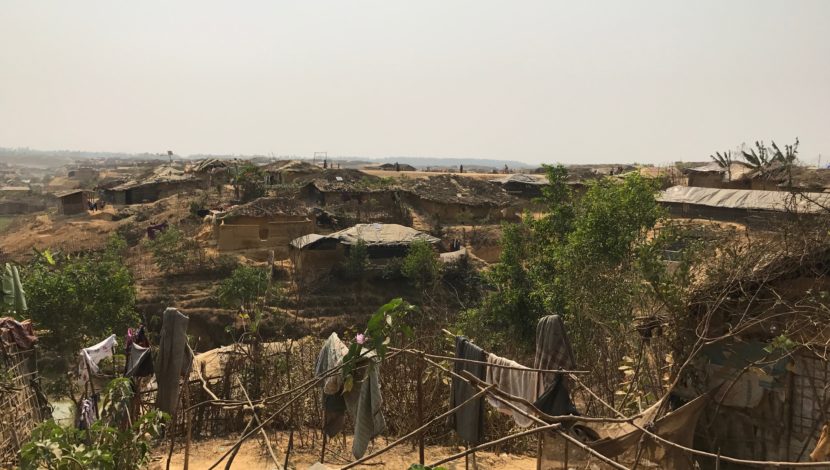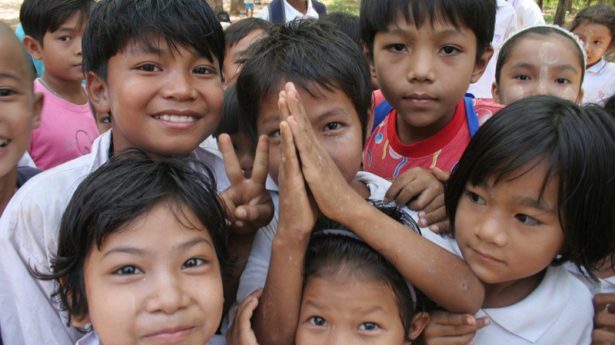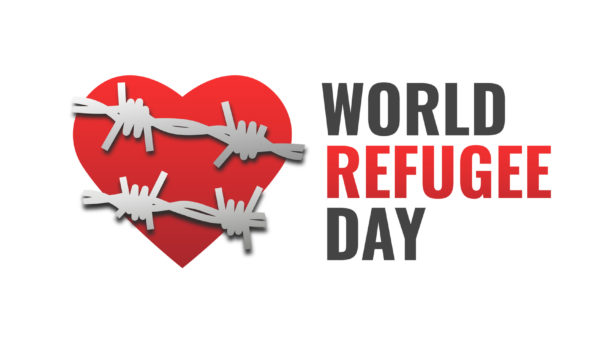The Unitarian Universalist Service Committee advances human rights through grassroots collaborations.
Why Solidarity with the Rohingya Matters Now More Than Ever

By UUSC Staff on June 25, 2020
This is part two of a two-part series on UUSC’s work in Burma. Part one of the series can be found here.
Events of the past few weeks have seen an unprecedented social mobilization in support of the Movement for Black Lives. Spurred by the horrific extra-judicial murder of George Floyd by police officers in Minneapolis in May, hundreds of thousands of protesters across the United States and in cities around the world have gained traction to push authorities to finally reform violent, systemic police practices that are racist, anti-Black, and inhumane—or even to abolish the institution of the police entirely. The fight for racial justice and equity in the US has been centuries in the making, but various observers say that something—perhaps the growing visibility and sheer brutality of increasingly militarized police enforcement—has made this political moment somehow different from previous ones. The prospects for a real social and political shift in the United States seem to have made headway as Americans of all races are forced to reckon with systemic injustice built on white supremacy. With that reckoning, there’s a strong acknowledgement of the need for solidarity, that Black voices, activists, and Black-led organizations and movements are pivotal in the dismantling of oppressive systems.
As we clarify and strengthen our solidarity and human rights values to push for change across American society, we also have a critical opportunity to acknowledge that our actions, tactics, and support for justice and social change reverberate globally. The United States—through both official government aid and private foundations—gives more international development assistance to support human rights, humanitarian assistance, and democracy promotion than any other country, and how we as Americans direct and frame that international assistance matters now more than ever.
No community likely understands this better than the Rohingya, the Muslim minority from western Burma (also known as Myanmar) that the United Nations have claimed as the most persecuted minority in the world. After decades of state-sanctioned discrimination, oppression, and violence, the vast majority of Rohingya people today have been rendered stateless by the Burmese government and have become refugees and exiles. A massive Burmese military onslaught in 2017 killed untold numbers of Rohingya people, and more than 700,000 mostly women and children were forced to flee to Bangladesh, joining previously displaced generations and forming what is today the world’s largest refugee camp. Nearly half a million other Rohingya remain in Burma in apartheid-like conditions in IDP (internally displaced person) camps or under lockdown in the few Rohingya homes that weren’t destroyed. Prospects for the safe repatriation of refugees and a return of agricultural and ancestral lands remain grim in the face of a defiant Burmese government and military apparatus which also puts strict limitations on the freedom of movement, and access to education and health, among other rights. Among a vast archive of documentation collected over the past few years, a recently released online exhibit curated by the U.S. Holocaust Memorial Museum traces the Burmese government’s history of human rights abuses committed against the Rohingya—administrative, systemic, racist, and violent policies and practices—which many legal experts are calling a genocide.
How do we develop a response to support the people who have been rendered the most vulnerable in the world? The U.S. government has pledged hundreds of millions of dollars of humanitarian aid to Rohingya refugees in Bangladesh and, along with other Western governments and various private foundations, it serves as a key financier of Burma’s stalled ethnic peace process and a mainstay in supporting the country’s democratic reforms, which have largely focused on shoring up electoral and governance processes that continue to exclude and discriminate against ethnic and religious minorities. Despite a likely estimate of more than $1 billion of international aid from Americans since Burma’s tentative shift towards democracy in 2012, the situation for the Rohingya has actually worsened. Ironically, the extent of the Rohingya’s struggle is evidenced by what many legal experts have viewed as unprecedented progress for international justice and accountability, as the International Court of Justice – the world’s highest court based in The Hague—recently took up the case filed against Burma to determine the state’s culpability in upholding its obligations under the 1948 Genocide Convention.
What compounds the trauma, violence, and discrimination the Rohingya have faced in their homeland is the fact that they have also been systematically excluded by the international community in nearly every discussion and decision-making process on how international aid programs can effectively help and strengthen their own community. Even with the advancement of international justice processes at The Hague, justice concerns and transformative justice programs for grassroots Rohingya communities remain a distant hope, putting into question the reality of justice ever being felt by the actual victims’ families and survivors of the genocide. The Rohingya have essentially found themselves at the intersection of multiple international aid streams that have turned into a vortex that continues to render them powerless. The landscape is ultimately characterized by and amplifies the very racism, inequality, islamophobia, and gender discrimination that they have tried to escape.
In the aftermath of the horrific genocide of the Holocaust, wherein UUSC’s initial work was founded under a program to rescue Jewish children from Nazi occupation and violence, we are called today to continue our storied legacy of upholding human rights values to fight genocide in the 21st century, but to also move beyond a rescue mission. As we continue to learn from and improve our support for Black-led movements in the United States, we must also recognize that international aid and solidarity with the Rohingya will require us to use our power to support and advocate for Rohingya voices and Rohingya-led organizations to be at the forefront of their own movement.
***
About UUSC: Guided by the belief that all people have inherent worth and dignity, UUSC advances human rights globally by partnering with affected communities who are confronting injustice, mobilizing to challenge oppressive systems, and inspiring and sustaining spiritually grounded activism for justice. We invite you to join us in this journey toward realizing a better future!
Photo Credit: UUSC Staff

